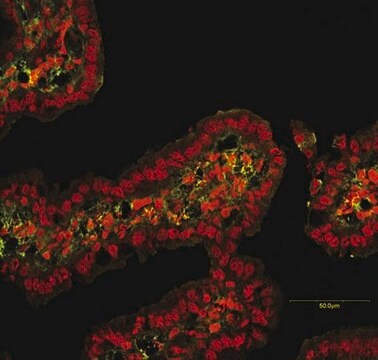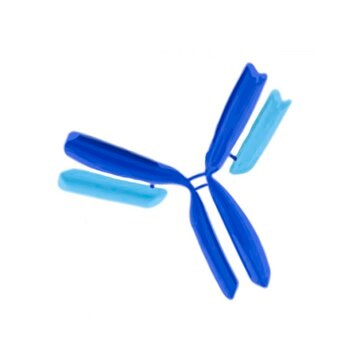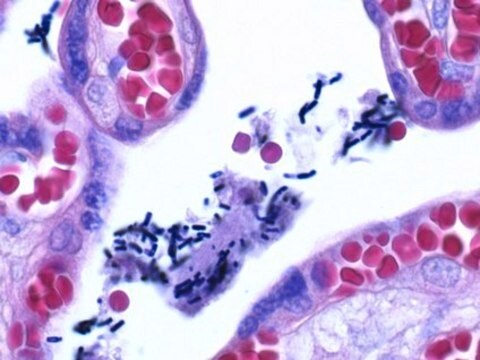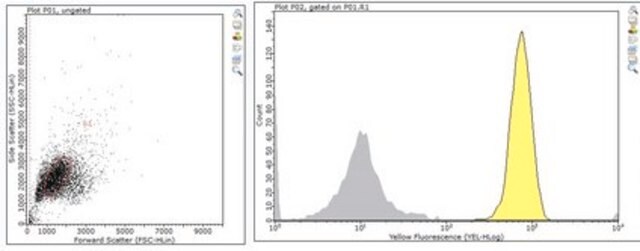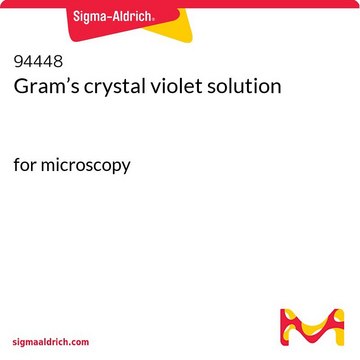ABC937
Anti-FOXL1 Antibody
from rabbit, purified by affinity chromatography
Sinónimos:
Forkhead box protein L1, Forkhead-related protein FKHL11, Forkhead-related transcription factor 7, FREAC-7, FOXL1
About This Item
Productos recomendados
origen biológico
rabbit
Nivel de calidad
forma del anticuerpo
affinity isolated antibody
tipo de anticuerpo
primary antibodies
clon
polyclonal
purificado por
affinity chromatography
reactividad de especies
human
reactividad de especies (predicha por homología)
sheep (based on 100% sequence homology), feline (based on 100% sequence homology), porcine (based on 100% sequence homology), bovine (based on 100% sequence homology), horse (based on 100% sequence homology)
técnicas
immunohistochemistry: suitable (paraffin)
western blot: suitable
Nº de acceso NCBI
Nº de acceso UniProt
Condiciones de envío
wet ice
modificación del objetivo postraduccional
unmodified
Información sobre el gen
human ... FOXL1(2300)
Descripción general
Inmunógeno
Aplicación
Apoptosis & Cancer
Apoptosis - Additional
Calidad
Western Blotting Analysis: 0.5 µg/mL of this antibody detected FOXL1 in 10 µg of human colon tissue lysate.
Descripción de destino
Forma física
Almacenamiento y estabilidad
Otras notas
Cláusula de descargo de responsabilidad
¿No encuentra el producto adecuado?
Pruebe nuestro Herramienta de selección de productos.
Código de clase de almacenamiento
12 - Non Combustible Liquids
Clase de riesgo para el agua (WGK)
WGK 1
Punto de inflamabilidad (°F)
Not applicable
Punto de inflamabilidad (°C)
Not applicable
Certificados de análisis (COA)
Busque Certificados de análisis (COA) introduciendo el número de lote del producto. Los números de lote se encuentran en la etiqueta del producto después de las palabras «Lot» o «Batch»
¿Ya tiene este producto?
Encuentre la documentación para los productos que ha comprado recientemente en la Biblioteca de documentos.
Nuestro equipo de científicos tiene experiencia en todas las áreas de investigación: Ciencias de la vida, Ciencia de los materiales, Síntesis química, Cromatografía, Analítica y muchas otras.
Póngase en contacto con el Servicio técnico